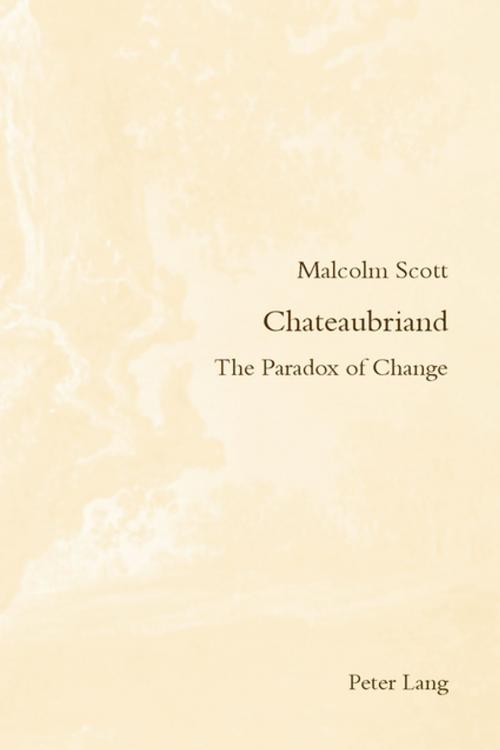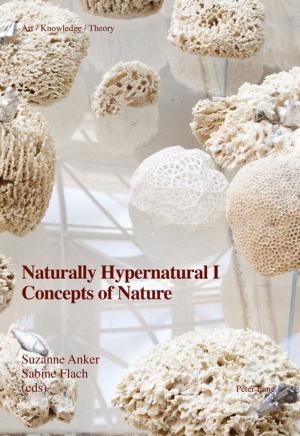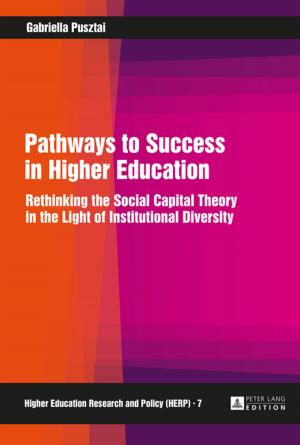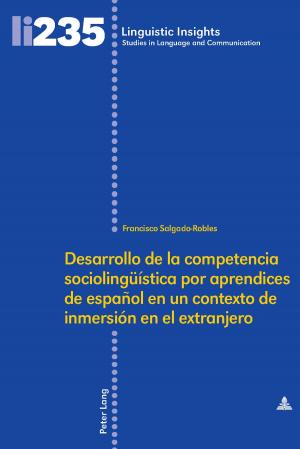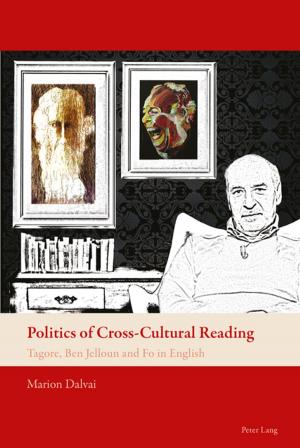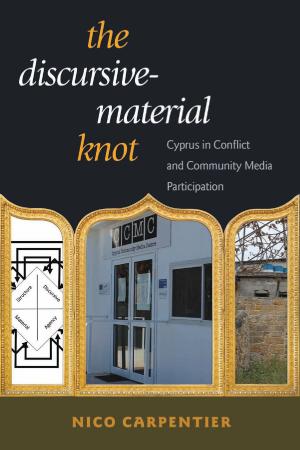Chateaubriand
The Paradox of Change
Nonfiction, Reference & Language, Foreign Languages, Latin, Fiction & Literature, Literary Theory & Criticism, French, European| Author: | Malcolm Scott | ISBN: | 9783035397208 |
| Publisher: | Peter Lang | Publication: | December 2, 2014 |
| Imprint: | Peter Lang AG, Internationaler Verlag der Wissenschaften | Language: | English |
| Author: | Malcolm Scott |
| ISBN: | 9783035397208 |
| Publisher: | Peter Lang |
| Publication: | December 2, 2014 |
| Imprint: | Peter Lang AG, Internationaler Verlag der Wissenschaften |
| Language: | English |
This reassessment of Chateaubriand’s literary and political achievements, offered as an intellectual biography of the writer, is centred on the concept of change and Chateaubriand’s emotional suspicion of change, arising both from mistrust of his own inconstancy and from the personal and collective suffering of the French Revolution. His aversion to change spread beyond politics to religion and literature, but conflicted with his intellectual fascination with historic change in all three areas. The paradox of his fluctuating attitude to change allows a challenge to traditional views of Chateaubriand’s status. Was he truly a committed founder of French Romanticism? Was he an unswerving right-wing legitimist? Was he an insincere and ‘aesthetic’ Christian? The book provides new answers to these questions, presenting a very different Chateaubriand both through an analysis of his preference for the epic literature of Greece and Rome and its Christian heritage in the sixteenth and seventeenth centuries and by its account of his subtle pleading for constitutional monarchy. Malcolm Scott argues that the failure of Chateaubriand’s political aspirations led him, again paradoxically, to the espousal of change and to a final dramatic reversal of his literary and religious standpoint, expressed in the writings of the last few years of his life.
This reassessment of Chateaubriand’s literary and political achievements, offered as an intellectual biography of the writer, is centred on the concept of change and Chateaubriand’s emotional suspicion of change, arising both from mistrust of his own inconstancy and from the personal and collective suffering of the French Revolution. His aversion to change spread beyond politics to religion and literature, but conflicted with his intellectual fascination with historic change in all three areas. The paradox of his fluctuating attitude to change allows a challenge to traditional views of Chateaubriand’s status. Was he truly a committed founder of French Romanticism? Was he an unswerving right-wing legitimist? Was he an insincere and ‘aesthetic’ Christian? The book provides new answers to these questions, presenting a very different Chateaubriand both through an analysis of his preference for the epic literature of Greece and Rome and its Christian heritage in the sixteenth and seventeenth centuries and by its account of his subtle pleading for constitutional monarchy. Malcolm Scott argues that the failure of Chateaubriand’s political aspirations led him, again paradoxically, to the espousal of change and to a final dramatic reversal of his literary and religious standpoint, expressed in the writings of the last few years of his life.
